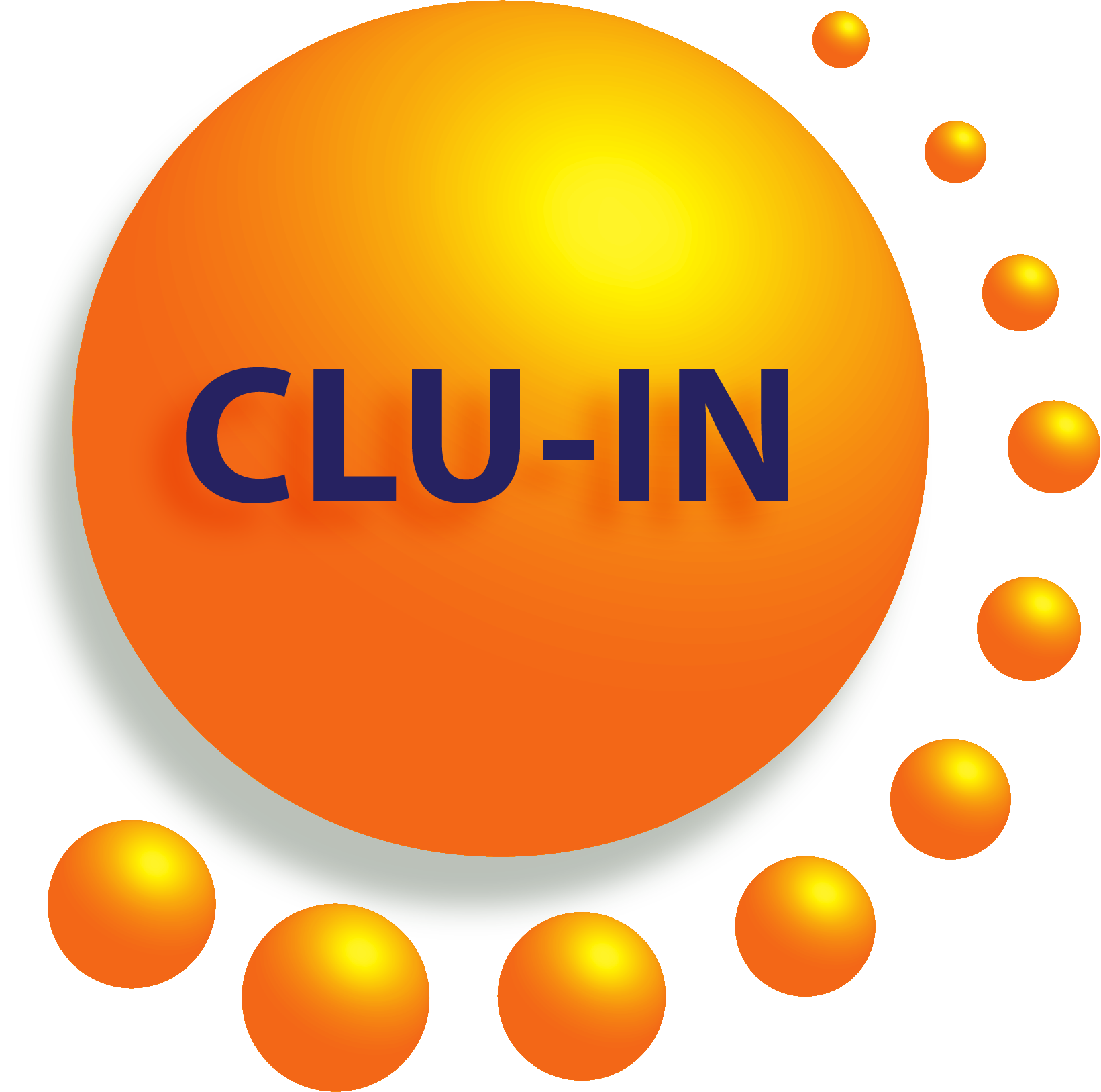Advancing Environmental Health Research with Artificial Intelligence and Machine Learning: Session III — ML & AI Applications to Understand Omics, Metabolomics, & Immunotoxicity and Optimizing Bioengineering Using Datasets, Models, & Mass Spectrometry
Archived: Friday, November 22, 2024
Sponsored by: The NIEHS Superfund Research Program (SRP)
The NIEHS Superfund Research Program (SRP) is hosting a Risk e-Learning webinar series focused on using artificial intelligence (AI) and machine learning to advance environmental health research. The series will feature SRP-funded researchers, collaborators, and other subject-matter experts who aim to better understand and address environmental health issues by applying AI and machine learning approaches to complex issues.
Recent advances in AI and machine learning methods show promise to improve the accuracy and efficiency of environmental health research. Over the course of three sessions, presenters will discuss how they use AI and machine learning approaches to improve chemical analysis, characterize chemical risk, understand microbial ecosystems, develop technologies for contaminant removal, and more.
In the third and final session, ML & AI Applications to Understand Omics, Metabolomics, & Immunotoxicity and Optimize Bioengineering Using Datasets, Models, and Mass Spectrometry, speakers will discuss how they apply machine learning and artificial intelligence tools to analyze mass spectrometry and microscopy data and optimize models for understanding metabolomics, metabolite pathways, and immunotoxicology
To learn about and register for the other sessions in this webinar series, please see the SRP website.
Grace Peng, Ph.D., is a co-coordinator of the National Institutes of Health (NIH) Common Fund's Bridge to Artificial Intelligence (Bridge2AI) program, bridging the gap between the biomedical, behavioral and bioethics research communities and the data science/AI communities through a consortium of diverse experts to set the stage for widespread adoption of AI/ML in medicine. Dr. Peng will give an overview of the Bridge2AI program and introduce one of their projects at the University of California San Diego — Trey Ideker, Ph.D. Dr. Ideker will discuss the cell maps for AI (CM4AI) functional genomics project, one of four major data generation projects under the Bridge2AI program. The goal of the project is to provide a comprehensive map of human cellular components through generation of major spatial proteomics datasets.
John Efromson, M.S., will present on Ramona Optic, Inc.'s Multi-Camera Array Microscope [MCAM(TM)], which is used to automate imaging and computer vision analysis of zebrafish and greatly improves previous throughput and analysis capabilities. Multiple applications of machine learning will be discussed, including behavioral pose estimation and phenotyping, morphological analysis, and cell counting and fluorescence quantification, as well as how these distinct analyses can be used together for pharmacology, toxicology, and neuroscience research.
Speakers:
- Grace C.Y. Peng, Ph.D., Division of Discovery Science and Technology (Bioengineering), National Institute of Biomedical Imaging and Bioengineering and Trey Ideker, Ph.D., University of California San Diego
- John Efromson, M.S., Ramona Optics
- Forest White, Ph.D., Massachusetts Institute of Technology (MIT)
- Moderator: Hunter Moseley, Ph.D., University of Kentucky
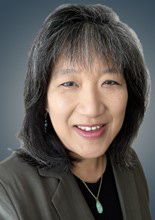 Grace C.Y. Peng, PhD, Division of Discovery Science and Technology (Bioengineering), NIBIB (grace.peng@nih.gov)
Grace C.Y. Peng, PhD, Division of Discovery Science and Technology (Bioengineering), NIBIB (grace.peng@nih.gov)
Grace Peng, Ph.D. has been the director of mathematical modeling, simulation, and analysis at NIBIB within the NIH, since 2002. In 2020, she became one of the co-coordinators of the NIH Bridge2AI Common Fund Program. Peng is committed to promoting the development and use of intelligent tools and reusable data and models to accelerate biomedical research and translate scientific knowledge to the clinic and community. She earned her master's and doctoral degrees in biomedical engineering from Northwestern University. She performed postdoctoral and faculty research in the Department of Neurology at the Johns Hopkins University. In 2020, she was inducted into the American Institute for Medical and Biological Engineering College of Fellows.
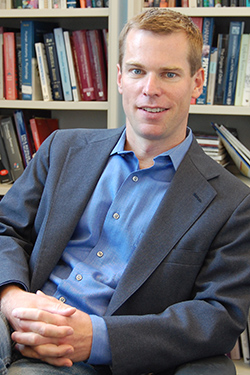 Trey Ideker, PhD, University of California San Diego (tideker@health.ucsd.edu)
Trey Ideker, PhD, University of California San Diego (tideker@health.ucsd.edu)
Trey Ideker, Ph.D., is a professor of medicine, bioengineering, and computer science, and former chief of genetics, at UCSD. Additionally, he is a co-director of the NIH Bridge2AI Program. Ideker received his master’s degree in computer science from the Massachusetts Institute of Technology and a doctoral degree in genome sciences from the University of Washington. He became a David Baltimore Fellow at the Whitehead Institute before joining the UCSD faculty in 2003. Presently, Ideker serves on the Board of Scientific Advisors to the NIH National Cancer Institute and, formerly, to the National Human Genome Research Institute.
 John Efromson, MS, Ramona Optics (john@ramonaoptics.com)
John Efromson, MS, Ramona Optics (john@ramonaoptics.com)
John Efromson is a Senior Machine Learning Engineer at Ramona Optics, Inc., a startup that is combining advanced imaging methods with machine learning to rapidly image and analyze model organisms for biomedical research, with a focus on toxicology, pharmacology, and neuroscience in zebrafish.
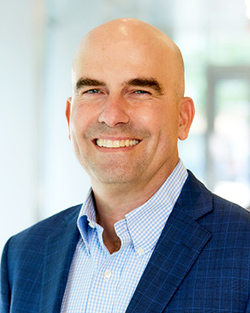 Forest White, PhD, Massachusetts Institute of Technology (MIT) (fwhite@mit.edu)
Forest White, PhD, Massachusetts Institute of Technology (MIT) (fwhite@mit.edu)
Forest White is a Professor in the Biological Engineering Department at MIT and a member of the MIT Center for Precision Cancer Medicine. He earned his bachelor’s degree in chemistry from Framingham State College in 1993, and a doctorate in analytical chemistry from Florida State University in 1997. Following postdoctoral research in bioanalytical chemistry in the laboratory of Donald Hunt at the University of Virginia, he joined MDS Proteomics, Inc. as a research scientist working his way up to group leader. White joined MIT in 2003 as an Assistant Professor and today he serves as the Co-Investigator for the MIT Superfund Research Program’s Data Management and Analysis Core.
Moderator:
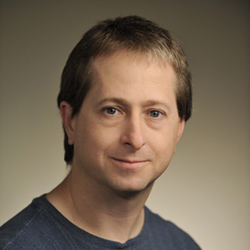 Hunter Moseley, PhD, University of Kentucky (hunter.moseley@uky.edu)
Hunter Moseley, PhD, University of Kentucky (hunter.moseley@uky.edu)
Hunter Moseley, Ph.D., is a professor in the molecular and cellular biochemistry department at the University of Kentucky. His broad research interest is in developing computational methods, models, and tools for analyzing, integrating, and interpreting many types of biological and biophysical data. These developments enable new understanding of biological systems and related disease processes, with applications in metabolomics, systems biochemistry, and structural biology. Moseley received his doctoral degree in biochemistry from the University of Alabama at Birmingham.
-
 Slide Presentation for Grace C.Y. Peng, Ph.D., National Institute of Biomedical Imaging and Bioengineering (1.85MB/PDF)
Slide Presentation for Grace C.Y. Peng, Ph.D., National Institute of Biomedical Imaging and Bioengineering (1.85MB/PDF)
-
 Slide Presentation for Trey Ideker, Ph.D., University of California San Diego (2.68MB/PDF)
Slide Presentation for Trey Ideker, Ph.D., University of California San Diego (2.68MB/PDF)
-
 Slide Presentation for John Efromson, M.S., Ramona Optics (7.17MB/PDF)
Slide Presentation for John Efromson, M.S., Ramona Optics (7.17MB/PDF)
-
 Slide Presentation for Forest White, Ph.D., Massachusetts Institute of Technology (MIT) (9.64MB/PDF)
Slide Presentation for Forest White, Ph.D., Massachusetts Institute of Technology (MIT) (9.64MB/PDF)
Webinar Slides and References:
-
 Slide Presentation for Grace C.Y. Peng, Ph.D., National Institute of Biomedical Imaging and Bioengineering (1.85MB/PDF)
Slide Presentation for Grace C.Y. Peng, Ph.D., National Institute of Biomedical Imaging and Bioengineering (1.85MB/PDF)
-
 Slide Presentation for Trey Ideker, Ph.D., University of California San Diego (2.68MB/PDF)
Slide Presentation for Trey Ideker, Ph.D., University of California San Diego (2.68MB/PDF)
-
 Slide Presentation for John Efromson, M.S., Ramona Optics (7.17MB/PDF)
Slide Presentation for John Efromson, M.S., Ramona Optics (7.17MB/PDF)
-
 Slide Presentation for Forest White, Ph.D., Massachusetts Institute of Technology (MIT) (9.64MB/PDF)
Slide Presentation for Forest White, Ph.D., Massachusetts Institute of Technology (MIT) (9.64MB/PDF)
Additional Resources:
Help & FAQs
- Frequently Asked Questions
- Content Questions?
Call Dylan Williams at 202-982-5717 or dylan.williams@nih.gov - Technical Problems?
Leave us a comment - Cancel Your Registration
- My Participation Records
- CEU Credits and PDHs
Zoom Resources
Before Webinar Day
This seminar will be delivered through Zoom. Participants are encouraged to update to the latest version of the Zoom application for the best experience.
If you are unable to install the Zoom application, most functions will be available if you join just using a modern web browser such as Chrome, Edge or Firefox. We strongly encourage you to run the Zoom Meeting Test prior to attending this webinar. Technical support on the day of the webinar will be very limited and subject to significant delays.
Backup Conference Call
If you cannot participate using online audio, you may join the optional call in line. After checking in for the live event using the instructions listed below, you will see several options to participate. Please click the links in option 4 to follow along by phone and obtain the call in number. If you cannot access the phone number, you may request the call in line from the event moderator in the Q&A or send an email to Jean Balent at balent.jean@epa.gov
Click on "Join Webinar" at the top of this screen, enter your exact first and last name as you registered and enter the number of people attending at your location (including yourself). You should then be taken to the Zoom meeting room. Join with Zoom Application: For those joining with the Zoom application, you may be prompted to sign with a zoom account or join as a guest without signing in.
If joining as a guest, you will be prompted to enter your name and email address. Remember your name, image, video or voice may be visible to others in the live event. When done, click "Join" When it is time for the live event to start, the meeting host will admit you to the live Zoom meeting. Join via web browser (without the Zoom Application): For those joining with a web browser, you may close any pop ups prompting you to download the Zoom app. The next window will allow you to enter your name (first name and last name) and check the box that you are not a robot. Click the blue join button. You may also be asked to provide your email address before joining the room. Remember your name, image, video or voice may be visible to others in the live event. When done, click "Join" When it is time for the live event to start, the meeting host will admit you to the live Zoom meeting. You may need to periodically refresh the browser window to confirm if the host has admitted you. The presenters will control what slide you are viewing. You may submit questions online for the instructors to answer during the webinar by typing in the "Q&A" area. It is not necessary to wait until the question and answer periods to submit questions. At the end of the webinar you will be guided to our feedback form and links to additional resources, including the complete presentation. These links will remain active after the webinar. Provided for your convenience. Importing or accepting the invitation within this iCalendar file is not required, and declining the invitation does not cancel your registration. For additional information on iCalendar, please see our
iCalendar Help It is EPA's policy to make reasonable accommodation to persons with disabilities wishing to participate in the agency's programs and activities, pursuant to the Rehabilitation Act of 1973, 29 U.S.C. 791. Any request for accommodation should be made to Dylan Williams at 202-982-5717 or dylan.williams@nih.gov, preferably one week or more in advance of the webinar, so that EPA will have sufficient time to process the request. EPA would welcome specific recommendations from requestors specifying the nature or type of accommodation needed. EPA welcomes specific recommendations from requestors specifying the nature or type of accommodation needed. Please note that CLU-IN provides both alternate phone call-in options and closed captioning for all webinars, and requests for these specific accommodations are not necessary.
Webinar Day, Checking In
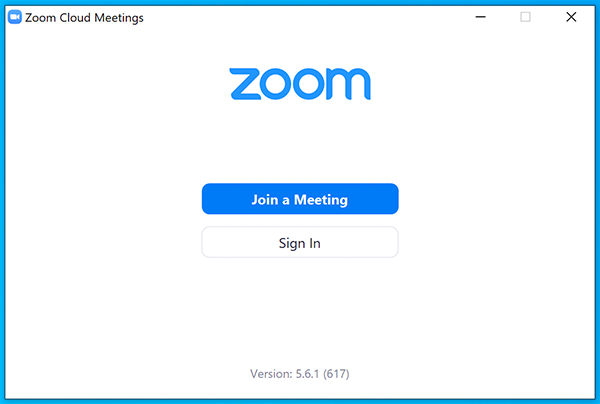
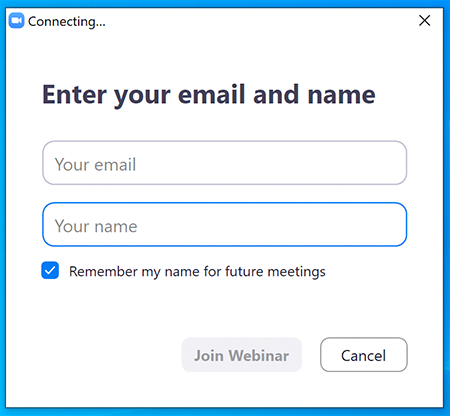
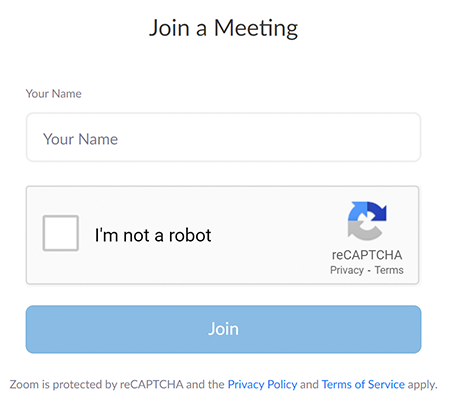
Moving Through Slides
Feedback & Links to Additional Resources
iCalendar File
Rehabilitation Act Notice for Reasonable Accommodation
Rehabilitation Act Notice for Reasonable Accommodation
It is EPA's policy to make reasonable accommodation to persons with disabilities wishing to participate in the agency's programs and activities, pursuant to the Rehabilitation Act of 1973, 29 U.S.C. 791. Any request for accommodation should be made to Dylan Williams at 202-982-5717 or dylan.williams@nih.gov, preferably one week or more in advance of the webinar, so that EPA will have sufficient time to process the request. EPA would welcome specific recommendations from requestors specifying the nature or type of accommodation needed. EPA welcomes specific recommendations from requestors specifying the nature or type of accommodation needed. Please note that CLU-IN provides both alternate phone call-in options and closed captioning for all webinars, and requests for these specific accommodations are not necessary.
Webinar Recording
By participating in this CLU-IN webinar, you automatically agree to authorize recording of audio and visual content presented during this live event and consent to subsequent use of this recording in the public domain by the U.S. Environmental Protection Agency. This recording may include questions, comments and poll responses provided by you during the live event in addition to your name, voice, image or likeness. This recording will be made available after the conclusion of the live event as part of the CLU-IN webinar archives, and will remain available indefinitely. If you do not wish to consent to the recording, please do not join the live event, and contact Jean Balent at 202-566-0832 or balent.jean@epa.gov to discuss your concerns.
Content Disclaimer
This webinar is intended solely to provide information to the public. The views and opinions expressed as part of this webinar do not necessarily state or reflect those of the U.S. Environmental Protection Agency. It is not intended, nor can it be relied upon, to create any rights enforceable by any party in litigation with the United States, or to endorse the use of products or services provided by specific vendors. With respect to this webinar, neither the United States Government nor any of their employees, makes any warranty, express or implied, including the warranties of merchantability and fitness for a particular purpose, or assumes any legal liability or responsibility for the accuracy, completeness, or usefulness of any information, apparatus, product, or process disclosed, or represents that its use would not infringe privately owned rights.

